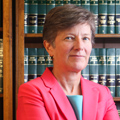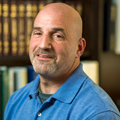Which lawyers won MacArthur 'genius grants' in 2014?
Three of this year’s MacArthur “genius grant” winners are lawyers who focus on criminal justice or civil rights issues, while a fourth is a professor who studies the impact of racial stereotypes in the criminal justice system.
The Chicago Tribune (sub. req.), the Atlanta Journal-Constitution and the New York Times have stories on the winners, 21 in all, who will each receive $625,000, paid out over five years. The winners with a legal focus are:

• Mary Bonauto, a civil rights lawyer with the Gay and Lesbian Advocates and Defenders in Boston. Among her achievements: She spurred Vermont to create civil unions in 2000, won the Massachusetts case establishing a right to gay marriage in 2003, and won a challenge to the Defense of Marriage Act in the Boston-based 1st U.S. Circuit Court of Appeals in 2012.

• William Mitchell law professor Sarah Deer, who seeks to combat domestic abuse and sexual violence against American Indian women through policies and legislation. “Native Americans are the most victimized group for sexual violence and domestic violence,” Deer told the New York Times. Deer’s work was instrumental in the passage of The Tribal Law and Order Act of 2010 and the 2013 reauthorization of the Violence Against Women Act, according to her MacArthur Foundation bio.

• Stanford University social psychologist Jennifer Eberhardt, whose experiments show how unconscious racial stereotypes can lead to bias against African Americans in the criminal justice system. She found that defendants who appear stereotypically “blacker”—based on skin color, hair texture and lip size—are more likely to receive the death penalty when the victim is white, the New York Times says. Police officers are also more likely to judge people as criminals when they had the most stereotypically black features, she found.

• Atlanta lawyer Jonathan Rapping, who trains and coaches public defenders through his organization, Gideon’s Promise. “Public defenders are doing this generation’s civil rights work,” he told the Atlanta Journal-Constitution. He says PDs have high caseloads and insufficient resources. The United States, he says, “has come to accept an embarrassingly low standard of justice for poor people.” He says his organization is intended as “a supportive community of lawyers who are working to force the system to live up to its highest ideals.”
All images courtesy of the John D. & Catherine T. MacArthur Foundation.



